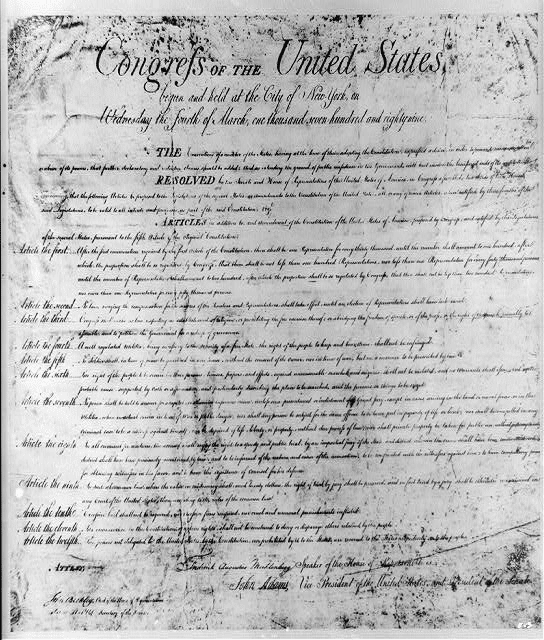Flag desecration, defacing, and burning is not illegal in the United States and it is largely considered to be protected speech according to the First Amendment.
While it is thought of as offensive by some, so long as the act of burning the United States flag does not harm another person, it remains a legal expression of free speech.
Many attempts have been made to outlaw and prohibit flag burning, but it remains a protected right under the law.
A History of Flag Burning Prosecutions in the 20th Century
In the 1960s, a World War II veteran was convicted of setting fire to an American flag during a protest. Sydney Street burned an American flag to protest the murder of a civil rights activist in the South.

He was convicted, and later had his conviction overturned in the United States Supreme Court case Street v. New York.
Street v. New York – striking down New York state law
Street’s burning of a flag was viewed as an act of protest, and therefore was considered an expression of his First Amendment rights according to the Supreme Court ruling.
In the case of Street v. New York, the State of New York had a law on its books that made it a crime to desecrate the United States flag.

This law was at the heart of the case against Street and was considered in opposition to the First Amendment of the United States Constitution in a Supreme Court decision. The New York State law was struck down as a result of this ruling.
Spence v. Washington – overturning the Washington State Supreme Court
In 1970, a student named Harold Omand Spence at the University of Washington hung an upside-down American flag with peace symbols taped to it to protest the murders of Kent State students by the Ohio National Guard.
While Spence was convicted of altering an American flag, the Supreme Court ultimately ruled that his act of protest counted as a protected act of expression.

This ruling overturned a previous Washington State Supreme Court ruling that made defacing an American flag an offense.
Texas v. Johnson – upholding freedom of speech
In 1984, United States citizen Gregory Lee Johnson burned an American flag outside of the Republican National Convention in Dallas to protest the policies of then-president Ronald Reagan.
He was arrested and convicted of defacing a flag, but the conviction was later overturned in the case Texas v. Johnson and his burning of the flag was considered “symbolic speech“.
This meant that although this was an act of protest and not written or spoken words, the act itself was considered protected speech.

In spite of state-level attempts to outlaw the act of burning or defacing an American flag, both the United States Supreme Court and also popular opinion are aligned – flag burning should remain as both protected speech and protected protest.
The Supreme Court has repeatedly ruled to protect acts of protest as expressions of free speech.
Each of these rulings has affirmed that burning or defacing the American flag is considered an act of protest and is therefore a right according to the First Amendment.
Attempts To Make Flag Burning Illegal in the 20th Century
Congress has tried numerous times to prohibit American citizens from desecrating or defacing the American flag, but the Supreme Court has consistently sided with American citizens and has overruled these attempts.

According to the Supreme Court rulings, the right to free speech, the act of protest, and the expression of an idea supersedes any other citizen’s perception of an act as offensive.
This right, however, is neither permanent nor guaranteed and there have been many attempts to prohibit flag burning at the federal level.
The Flag Protection Act
Following the case of Texas v. Johnson in the 1980s, Congress initially passed the Flag Protection Act which would have prosecuted anyone who defaced or damaged an American flag.
This act was later struck down by the Supreme Court in U.S. v. Eichmann, which ruled it as unconstitutional. Congress would continue to attempt to pass flag protection laws without success over the next two decades.
Congressional attempts to outlaw flag burning
The House of Representatives has repeatedly tried to pass measures to render flag burning illegal, but it has run into opposition in the Senate where it has continually failed to earn the two thirds majority necessary for passing any law.

It should also be noted that while amendments to prohibit flag burning have come to the floor for a vote in the House and have passed in the House many times, the margins for passing have been steadily shrinking since the 1990s.
While it is possible that Congress could try again to pass laws against flag burning, the attempts to outlaw flag burning are less and less popular with the population at large.
Popular support for flag burning legislation has continued to wane in recent years, with many Americans acknowledging that freedom of expression comes before their distaste for individual acts of protest.
How Legal Is It To Burn an American Flag?
While the direct burning of an American flag is still technically legal, any person can still be charged with other offenses.
If, for example, the burning of a flag also results in damage to private or public property, this could result in a charge of vandalism, even if vandalism was not the intent.

A business could also in theory take someone to civil court for violating their property rights due to damage arising from a burning flag on their premises.
These arrests and convictions may be used as a way to skirt the rulings that flag burning is protected speech, though it is unclear if this would act as a deterrent.
Protest is a long-held American tradition, and many American citizens are reluctant to overturn centuries of tradition, even if they may disagree over the methods of protest.
Interest in prohibiting flag burning continues to wane at the governmental level. Some of these arrests and convictions may be legitimate if the charge is not about burning the flag.
Though there are many legal protections for burning an American flag, any citizen engaging in this form of protest should seek legal counsel should their act of protest result in an arrest or conviction.

Get Smarter on US News, History, and the Constitution
Join the thousands of fellow patriots who rely on our 5-minute newsletter to stay informed on the key events and trends that shaped our nation's past and continue to shape its present.




